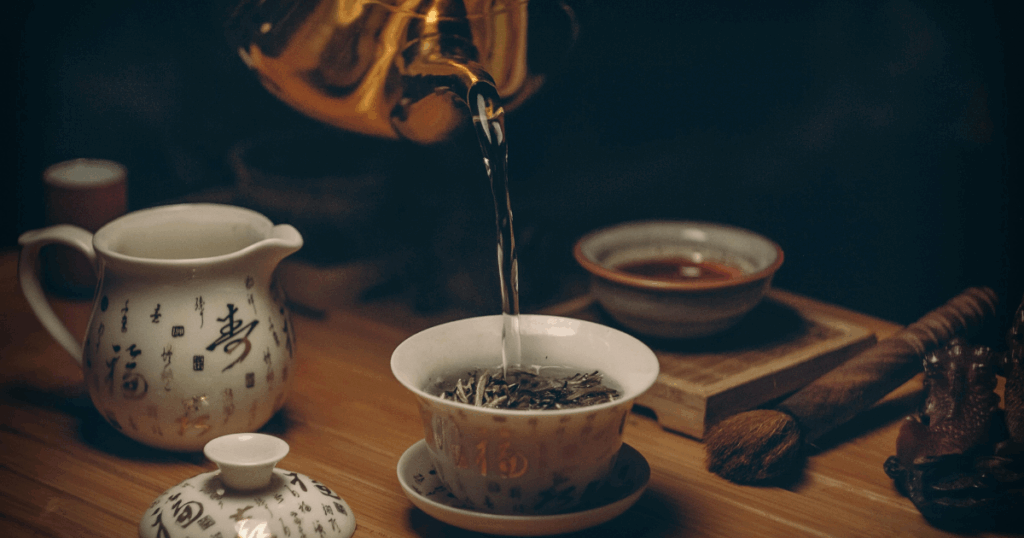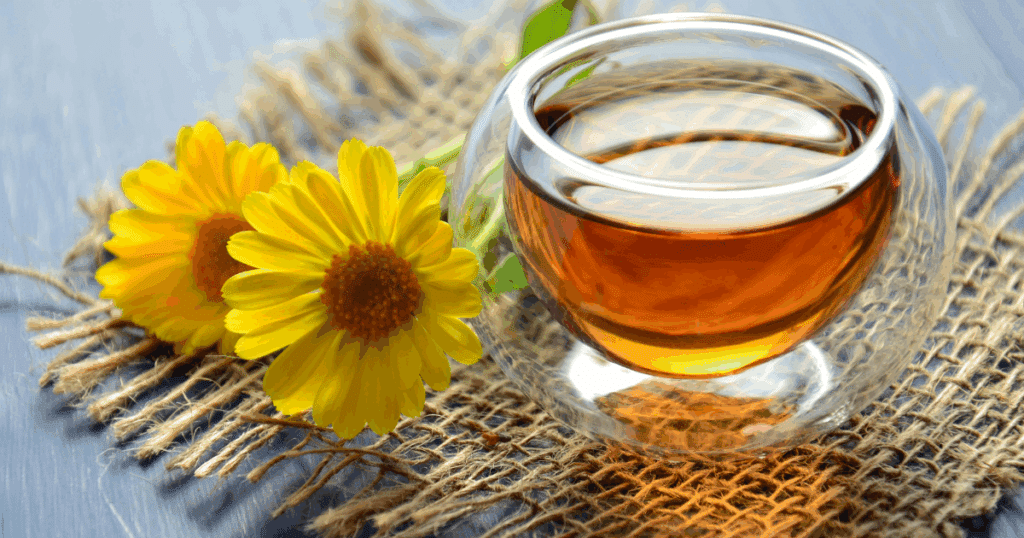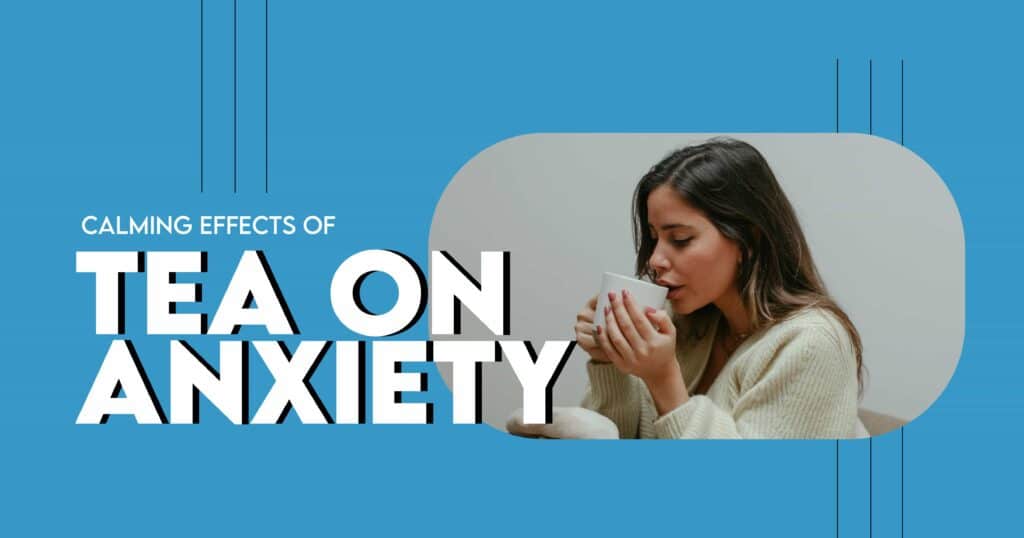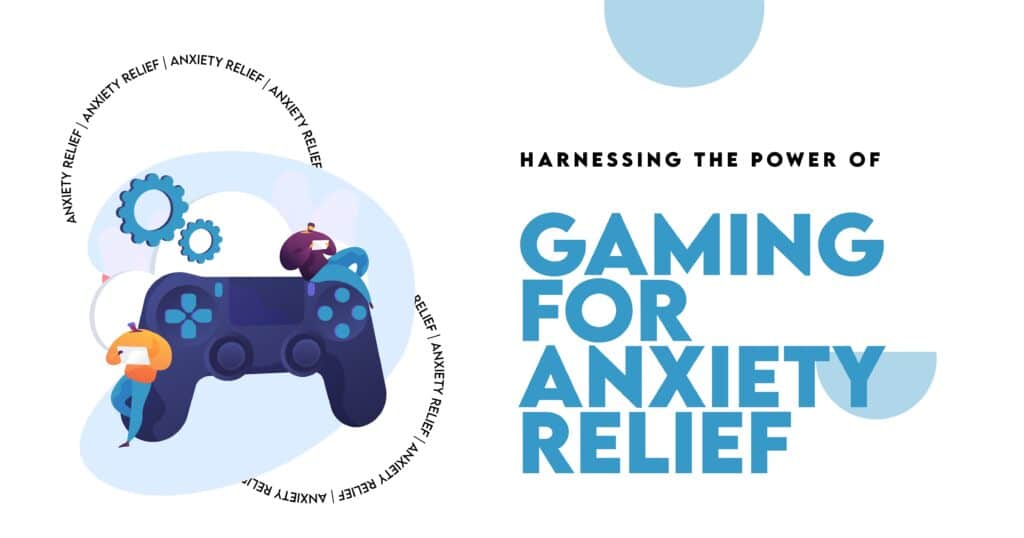Anxiety is one of the most common mental health struggles, affecting millions of people worldwide. While therapy, medication, and lifestyle changes are often part of treatment, many individuals also explore natural remedies for anxiety to complement traditional care. Among these, tea has earned a special place. For centuries, cultures around the world have turned to soothing teas for anxiety as part of their wellness routines. But the big question remains: does tea help with anxiety?
Let’s take a closer look at how different types of tea interact with the mind, the compounds that play a role, and how you can use anxiety-reducing teas as a gentle, supportive tool in your daily life.
The Connection Between Tea and Anxiety Relief
Tea isn’t just a warm beverage; it’s a ritual, a pause in the day, and for many, a therapeutic practice. Sipping tea encourages mindfulness, allowing you to slow down and focus on the present moment. Research shows that mindful rituals like tea drinking can lower stress hormones and improve mood.
On a biological level, many teas contain compounds that directly influence the nervous system. These compounds can reduce cortisol, regulate neurotransmitters, and even improve sleep quality – all of which are important factors in managing anxiety. In short, tea and mental health are more connected than most people realize, making tea a holistic option for those looking to cultivate calm.
Types of Tea Known for Reducing Anxiety
Not all teas are created equal when it comes to managing stress. Below are some of the most common varieties used as anti-anxiety tea blends.
Herbal Teas
Herbal teas are naturally caffeine-free and often used as herbal tea for anxiety. Popular varieties include:
- Chamomile, known for its mild sedative effects.
- Lavender, which reduces nervous tension and promotes relaxation.
- Lemon balm, a gentle herb that can lift mood and reduce restlessness
Green Tea.
Green tea is rich in L-theanine, an amino acid shown to promote calmness without drowsiness. It also contains antioxidants that protect the brain from oxidative stress, another factor linked to anxiety.
Black Tea
Though higher in caffeine, black tea also has calming tea benefits when consumed in moderation. Studies suggest black tea lowers cortisol levels after stressful events, making it one of the best teas for stress relief if you enjoy stronger flavors.
Active Compounds in Tea That Aid in Anxiety Reduction
When we ask does tea help with anxiety, the answer lies in its active compounds. Here’s a look at the main players and how they work:
| Compound | Function in Anxiety Relief | Found In |
| L-theanine | Promotes relaxation by increasing alpha brain waves | Green tea, black tea |
| Antioxidants | Reduce oxidative stress, which is linked to mood disorders | Green tea, white tea, herbal blends |
| Caffeine (low doses) | Boosts alertness while L-theanine balances overstimulation | Black tea, green tea |
This unique combination explains why tea offers balance: it soothes without making you overly tired, and energizes without creating jitters.

Scientific Studies on Tea and Anxiety
The effects of tea on mental health aren’t just anecdotal – they’re supported by science. For example, a 2016 study published in the Journal of Physiological Anthropology found that drinking green tea with L-theanine significantly reduced stress responses. Similarly, black tea has been linked to lower cortisol levels, as shown in research from University College London.
For those interested in diving deeper into the evidence, the National Center for Complementary and Integrative Health (NCCIH) offers valuable, unbiased information about herbs and natural health practices. These findings reinforce why anxiety-reducing teas are more than just comforting drinks – they can be genuine tools for self-care.
How to Incorporate Tea Into Your Daily Routine for Anxiety Relief
Building a daily tea ritual can make its calming benefits more effective. Here are a few ways to add soothing teas for anxiety into your life:
- Replace your afternoon coffee with green tea to avoid caffeine crashes and enjoy steady focus.
- Drink chamomile tea before bed to improve sleep quality, which in turn helps reduce anxiety.
- Keep a travel mug with lavender or lemon balm tea during stressful days at work or school.
Making tea part of your mindfulness routine – whether through deep breathing while sipping or journaling alongside your cup – enhances the relaxation response. Over time, this practice creates a strong association between tea and calmness, making it an anchor in your mental health toolkit.
Potential Side Effects and Considerations
While tea is generally safe, there are some things to consider. Caffeine-sensitive individuals should be cautious with black or green tea, as too much caffeine can heighten anxiety. Certain herbal teas may interact with medications, particularly those for blood pressure, sleep, or antidepressants. Pregnant or breastfeeding women should consult their healthcare provider before trying herbal tea for anxiety.
Ultimately, moderation and awareness are key. Opt for high-quality blends, listen to your body, and consult a professional if you have concerns about how tea might interact with your health plan.
MedlinePlus provides a comprehensive and noncommercial database of herbal remedies, their uses, safety profiles, and known interactions with prescription and over-the-counter medicines.
Find Balance and Relief From Anxiety at La Jolla Mental Health
At La Jolla Mental Health, we understand that managing anxiety requires a comprehensive approach. While natural remedies for anxiety like tea can play a supportive role, professional care is often needed to address the deeper roots of mental health struggles. Our compassionate team specializes in evidence-based treatments tailored to your unique needs. If you’re ready to take the next step toward a calmer, healthier mind, contact us today. Together, we’ll help you find balance, resilience, and peace.

FAQs
What are the calming tea benefits for anxiety and stress relief?
Calming teas can lower stress hormones, improve relaxation, and create a sense of mindfulness. Over time, this can reduce anxiety symptoms and improve overall well-being.
How do herbal teas for anxiety work as natural remedies for mental health?
Herbal teas like chamomile, lavender, and lemon balm contain compounds that relax the nervous system, reduce restlessness, and promote sleep.
Which are the best teas for stress relief and reducing anxiety symptoms?
Chamomile, lavender, and lemon balm are among the most effective herbal options. Green tea and black tea are also beneficial due to their unique balance of L-theanine and antioxidants.
What active compounds in anti-anxiety tea blends contribute to their soothing effects?
L-theanine, antioxidants, and low doses of caffeine all play roles in calming the nervous system and balancing mood.
Are there any potential side effects when using anxiety-reducing teas as part of a daily routine?
Some teas contain caffeine, which may increase anxiety in sensitive individuals. Herbal teas may also interact with medications, so consulting a healthcare provider is recommended.







